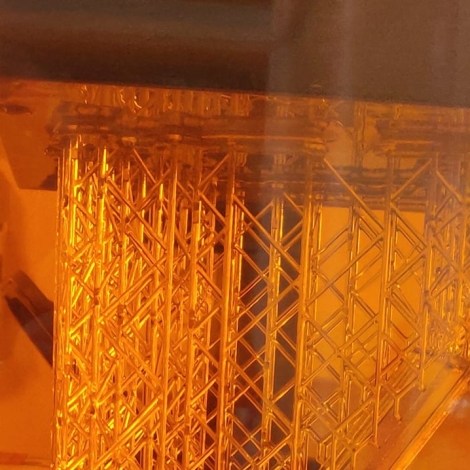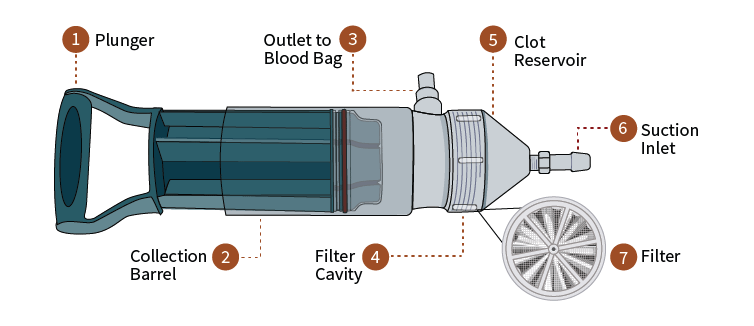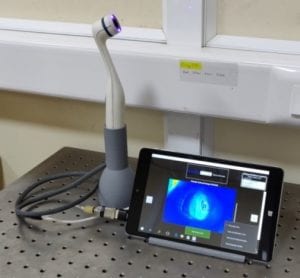
Sascan’s OralScan imaging device is shown here connected to a tablet. Photo courtesy of Sascan
A medical device startup in Bengaluru, India, is conducting clinical trials with its oral cancer detection system and can now differentiate between types of cancers. The startups, Sascan, impressed judges at the 2018 Innovation Showcase by the American Society of Mechanical Engineers, also in Bengaluru, and won a 3D printer from Formlabs. ASME is one of Engineering for Change’s founding partners, and members of E4C’s team have been invited as judges of iShow.
See E4C’s iShow coverage: Ten Social Good Startups with Award-Winning Technology
“We have improved upon the software and data analytics,” Sascan’s founder and director, Dr. Subhash Narayanan, told E4C by email. “Now our device has the ability push the captured data to the cloud, where a machine learning algorithm runs to provide feed on the ratio values for discrimination between different types/grades of cancer to the user.”
The cancer-detection system is based on a handheld camera that takes multispectral images of a patient’s mouth and oral cavity. Then the startup’s proprietary software evaluates the images and flags regions that appear cancerous. Changes in tissue fluorescence and diffuse reflection – how light scatters as it reflects from the tissue – reveal cancer cells and information about their type and grade.
The clinical trial conundrum: Why implementation studies, not RCTs, are sometimes best for medical devices
Next steps for the startup are to standardize operations. The company is implementing ISO 13485 quality management systems for medical devices, and working now to obtain regulatory approvals, including ISO 60601-1 certification for the safety and performance of medical electrical equipment.
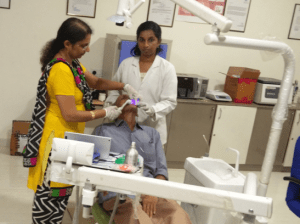
OralScan is in use at the Sri Balaji Dental Hospital, Chennai (India). Photo courtesy of Sascan
Oral cancer is a problem in India. It is among the top three cancers diagnosed in the country, accounting for 30 percent of all cancers in India, according to a paper published in 2012 in the Journal of Cancer Epidemiology. Sascan’s device could improve early detection and save lives.
The device impressed judges at the Indian arm of the 2018 iShow competition.
Sascan stood out for the following reasons: It has a potentially high social impact; it is affordable and non-invasive, it is easy to use, and it demonstrates high technical innovation while using many off-the-shelf parts, says Deepak Raj, an iShow judge and founder of Osteo3d, a Bengaluru-based startup that makes 3D-printed medical models for surgeons.
Factors that may have impeded Sascan’s ranking at iShow were that it had few clinical trials at the time and the startup needed to pay more attention to its business model and cost of raw materials, Raj says.
The startup performed well enough to take home a 3D printer awarded by Formlabs. Sascan has used the printer to build tangible prototypes for ongoing redesigns of the device. The company has also shared its printer with other startups in the medical technology incubator TIMed, Dr. Narayanan says.
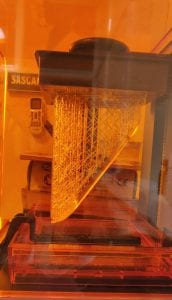
Sascan uses this Formlabs 3D printer for prototyping. Photo courtesy of Dr. Subhash Narayanan
For more information about Sascan please see the website: www.sascan.in.
For information about ASME iShow, please see: thisishardware.org.
For information about Formlabs’ 3D printers, please see: formlabs.com.
